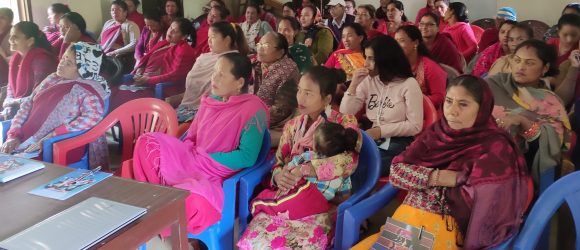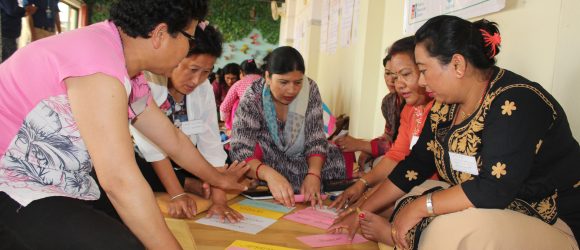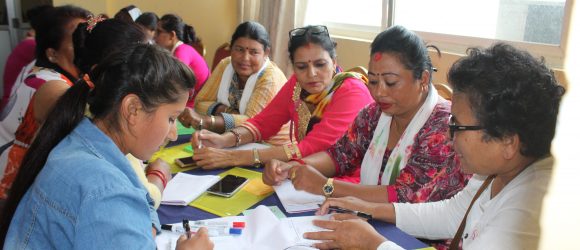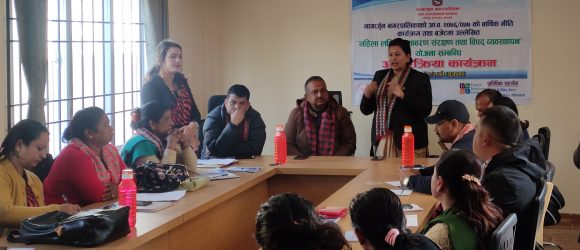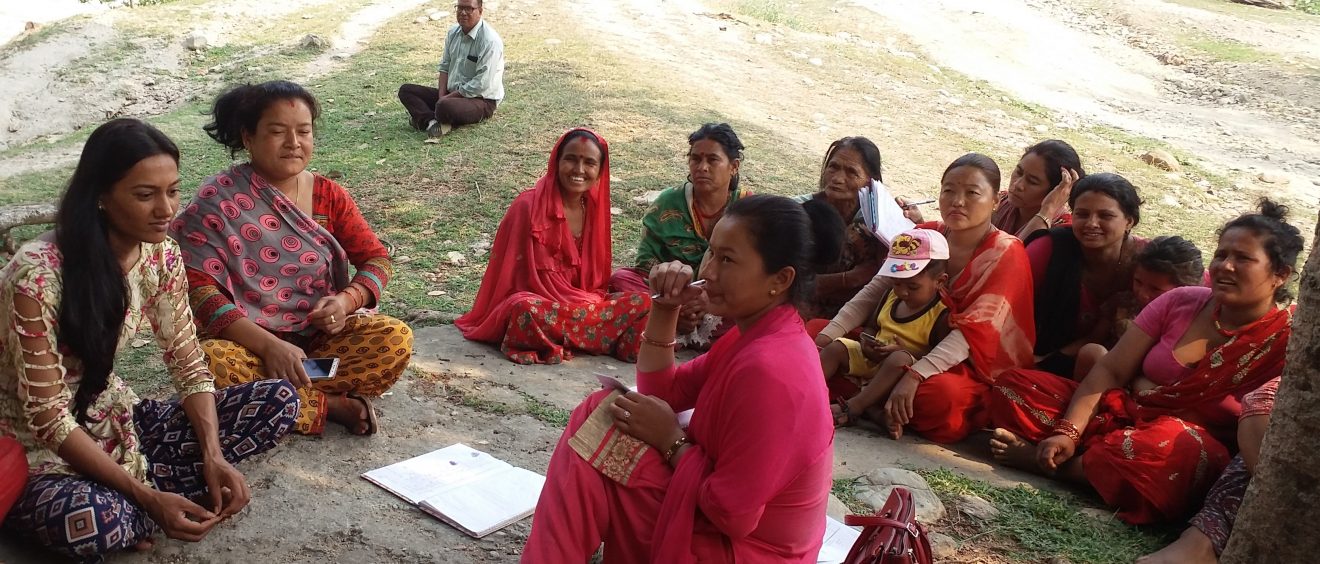
Nepalese women lead local advocacy on climate change
In Both ENDS’s experience, one plus one often makes more than two. Connecting people and issues accelerates positive change, and increases its impact and sustainability. The cooperation between Pakriti Resource Centre (PRC) and Tewa, the Nepalese Women’s Fund, illustrates the point. PRC is an expert on climate change and climate finance issues in Nepal and globally. A longer-term partner of Both ENDS, PRC got to know Tewa, which provides small grants to mostly rural, grassroots women’s groups in Nepal, through the GAGGA programme. GAGGA brings women’s rights and environmental justice organisations together to advance women’s rights to water, food and a healthy environment.
In recent years, Tewa has become increasingly interested in environmental justice issues, inspired by the work of the women’s groups it supports in conservation, promotion of organic farming, and waste management and the like. Participation in Both ENDS’s webinars on gender-responsive climate finance piqued the group’s interest in the topic. For its part, PRC wanted to look deeper into the gender dimensions of climate finance and strengthen the gender justice component of its advocacy on climate change.
The relationship between PRC and TEWA evolved naturally through sharing and learning from each other within the GAGGA programme. It wasn’t long before the groups developed joint plans to strengthen each other’s work, and bring the issues of climate and women’s rights closer together. In 2019 they began a collaboration focused on empowering women to engage with their local governments and press for climate and gender-responsive policies, plans and programmes. In May, 25 women from environmental and women’s groups supported by Tewa participated in a training on local government planning and budgeting processes. The groups came from five municipalities in Nepal’s Bagmati province. In addition to learning about climate change and its impacts, the women discussed when and how to best participate in community-level planning in order to influence the decision-making process and climate budgets.
FROM PROPOSAL TO IMPLEMENTATION
As part of the three-day training, participants developed their own proposals for local projects to address the various environmental and climate-related problems in their municipalities, which included drought, flooding, excessive use of pesticides and unmanaged solid waste. Among the diverse proposals developed were an initiative to build a plastic free-ward and an organic farming programme. The exercise equipped the women with the necessary information, knowledge, skills and confidence to take their proposals directly to local decision-makers.
And that’s exactly what they did. Back in their municipalities, the women submitted their proposals to the local government and participated in dialogues with municipal officials. Engaging for the first time in the local planning and budgeting process was an achievement in and of itself. What’s more, one of the groups, the Karambot Women’s Agriculture Group, succeeded in convincing the Manthali municipality to fund its proposed irrigation plan. River water will be used to irrigate drought-affected farmland, benefiting some 20 families. It was the first time the municipality has provided financial support to the women’s group, which is already planning to demand additional funding next year to expand the irrigation scheme.
The obstacle for women to engage in municipal planning processes is not merely about lack of awareness and confidence: they also face discrimination and their right to meaningful participation is often denied. Municipalities also tend to focus on physical infrastructure and neglect issues relevant to women or marginalised groups. Alongside supporting women to engage with local leaders, PRC and TEWA therefore provided training to mayors and officials in the five targeted municipalities on incorporating climate and gender perspectives in their policies, plans and budgets.
Participating mayors and deputy mayors have since made commitments to allocate budget to implementation of climate change and gender-responsive actions in municipal plans for the 2019/20 fiscal year. Examples include construction of water ponds, measures to conserve drinking water sources, planting of trees, solid waste management, and improved cooking stoves to reduce firewood consumption. PRC’s engagement has also increased local governments’ awareness about the risks of haphazard development of infrastructure, especially road construction which contributes to landslides, drying of water springs and other environmental problems.
Meanwhile, at the national level both PRC and Tewa participate in the Climate and Development Dialogue (C&D Dialogue), an informal civil society platform that facilitates dialogue and exchange of knowledge and learning and generates collective policy interventions towards national policymakers. With GAGGA’s support, the C&D Dialogue has increasingly focused on women’s rights and inclusion of local women’s organisations in its advocacy interventions. It has evolved into a strong and vibrant platform, engaging in climate decision-making processes, including those around the National Climate Change Policy and the Green Climate Fund.
The collaboration between PRC and Tewa in advancing Nepali women’s local leadership on climate and environmental justice and their experiences in including women’s needs and initiatives in climate policies and plans provide valuable insights and lessons. Both ENDS, PRC and Tewa are planning to share these lessons with other organisations in the region, as well as with policymakers at national and international levels. Among other things, Both ENDS, together with its partners, continues to influence Green Climate Fund policies and allocation of funds to ensure that climate financing genuinely reaches women’s groups and organisations.

